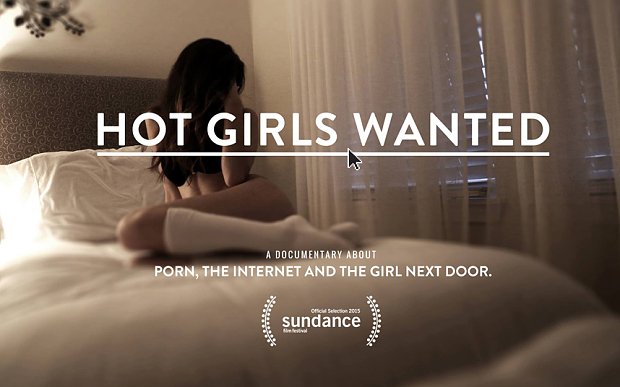One of the many disturbing moments in “Hot Girls Wanted,” a new documentary produced by Rashida Jones, features young woman who, after filming a porn scene that she wasn’t comfortable with, says:
“I was terrified, I didn’t know what to do. I didn’t know if I could tell him no.”
It’s this sense of a lack of control that Jones has long been vocal about. In October 2013, the “Parks and Recreation” actress faced backlash and accusations of slut-shaming after tweeting that female celebs should “stop acting like whores.” Later that year, she wrote an article for Glamour on the “pornification of everything” in pop culture, asking “why is everyone getting naked?” and remarking on the popularity of twerking.
Though her views on female pop stars and their sexuality have been divisive, Jones is now seeking to shed light on a new topic: the impact of the porn industry on the women who perform porn and the culture that consumes it. “Hot Girls Wanted,” produced by Jones and directed by Jill Bauer and Ronna Gradus, debuted on Netflix in May and chronicles the experiences of girls as young as 18-years-old who enter into the world of amateur pornography.
In a recent interview with Vice, Jones sat down with correspondent Gianna Toboni to discuss her thoughts on porn, explaining that her problem with porn is less about adult entertainment itself — but specifically the exploitation that young female performers sometimes endure and the misogyny that more hardcore offerings might promote.
“I have no problem with porn. Also, it doesn’t matter if I have any problem with porn because it’s here to stay,” Jones said. “I think it’s great that we have the freedom to explore our sexual fantasies and that there’s tools to do that. The problem with me is that there’s no regulation in the industry.”
Jones expressed concern for how girls may be initiated into the world of porn — attracted to the potential for money and fame but less prepared for the physical and mental toll working in porn may take. “When you’re 18 and you’re making choices for yourself, you’re not thinking about the eternal effects of porn. You’re not thinking about the psychological, emotional, and physical costs of having sex for money,” she said.
And when it comes to sex-positivity and the empowerment of sex workers, Jones argued that it’s not so cut and dry. It’s not necessarily “porn is degrading” or “porn is empowering,” perhaps it’s something in between.
“There is an argument that… if you’re making money, you’re empowered. It’s your choice, it’s entertainment, it’s for entertainment, and therefore: argument over,” she said. “I tend to think it’s slightly more nuanced than that. And it’s really difficult to believe that the girls who are crying… on camera are always acting and performing. I also find it hard to believe that everybody who watches that knows that it’s fake and it’s just for entertainment and don’t internalize it.”
Watch the full 13-minute conversation below.
[youtube]https://youtu.be/PLYszpvyED4[/youtube]





